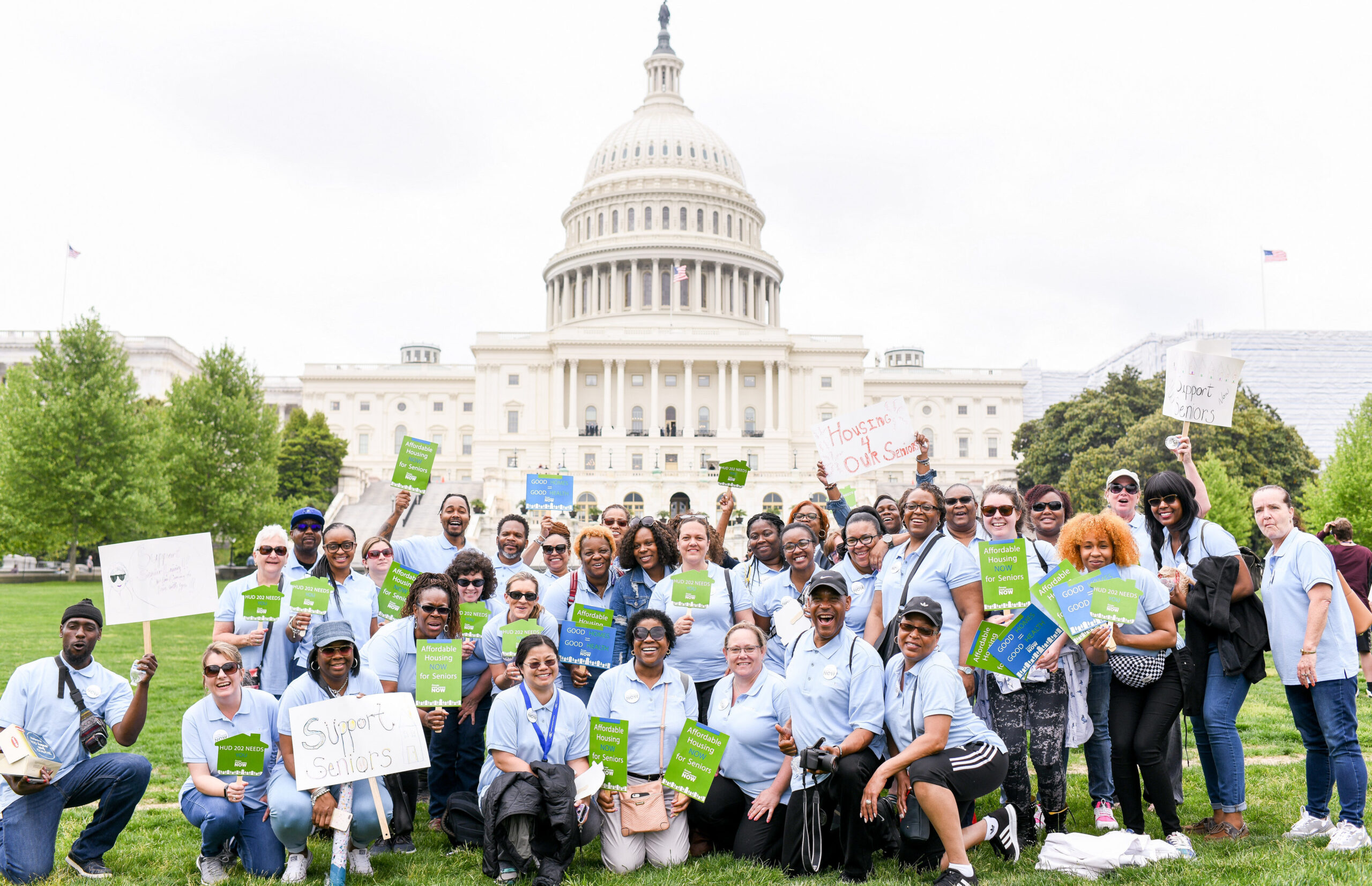LeadingAge members received the majority of new Section 202 Supportive Housing for the Elderly awards, which were announced January 15 by the U.S. Department of Housing and Urban Development (HUD).
The awards provide some resources to help build or redevelop housing as well as 40 years of operating subsidy to bridge the gap between what older adults with very low incomes can afford to pay for rent and what it costs to operate and maintain quality homes through Project Rental Assistance Contracts (PRAC). The Section 202 program is HUD’s flagship affordable senior housing program and has an emphasis on connecting residents, through service coordinators, with the supports they need to remain in their homes and neighborhoods for as long as they can.
The average annual income of a HUD Section 202 household is $16,262. Waiting lists to move into Section 202 homes can be many years long because the program is too small to meet the need. According to HUD, 2.25 million older adult households who would qualify for the program (because they have incomes below 50% of the area median income, i.e., are “very low income” in HUD’s definitions), but spend more than half of their very low incomes toward rent remain unassisted in the United States. Meanwhile, HUD’s latest data show that homelessness is increasing nationwide, with a 6% increase in homelessness among older adults between January 2023 and January 2024. LeadingAge advocates tirelessly to expand the supply of affordable housing and we congratulate all awardees for securing these scarce funds.
In total, the new Section 202 awards equal $96,953,81 to 11 nonprofit housing developers who will create 732 PRAC-assisted homes across the United States.
“As rents continue to climb and as the number of unhoused older Americans grows, providing affordable and supportive housing for our nation’s seniors is more important than ever,” HUD Assistant Secretary for Housing and Federal Housing Commissioner Julia Gordon said in HUD’s press release. “The Section 202 program is a cornerstone of our efforts to address this critical need.”

 Shutdown Week Three: Impact of Ongoing Closure on Affordable Housing
Shutdown Week Three: Impact of Ongoing Closure on Affordable Housing


